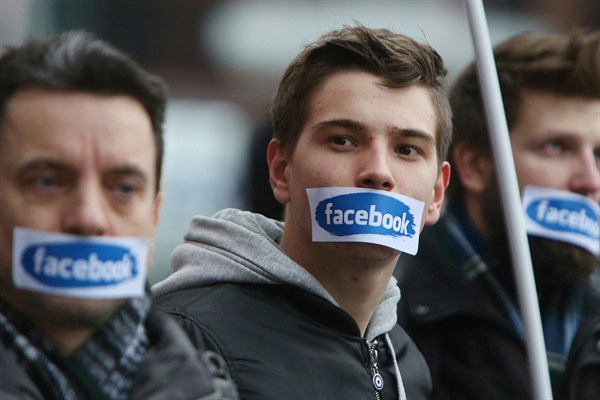On Dec. 4, a man with an assault rifle entered a Washington, D.C., pizza shop, planning to “self-investigate” a conspiracy theory purporting that Hillary Clinton was at the center of a “pedophilia ring” being run out of the restaurant. The rumor—which has, needless to say, been emphatically debunked—can be traced to Twitter posts with the hashtag #pizzagate, which started trending on Twitter in early November and were subsequently tweeted and retweeted thousands of times over the next several weeks.
The incident is one of many that have drawn attention to social media’s changing role in a tense political and social climate in the United States and Europe, marked by a growing appeal of populist and far-right movements and a spike in hate speech on and offline. That’s why, on Tuesday, European officials called on American tech giants to take a more active role in tackling hate speech online, just a day after Google, Microsoft, Twitter and Facebook agreed to collaborate on curbing the flow of online terrorist content and working to shut down the accounts of recruiters for radical groups.
Social media’s outsize role in shaping politics was more evident than ever in the U.S. election. Facebook in particular has been criticized for facilitating the dangerous diffusion of both hate speech and fake news stories before and after Election Day. While its founder, Mark Zuckerberg, initially dismissed such accusations, he later announced that Facebook would be assessing strategies to fight the phenomenon. But campaigners for free expression contend that controlling online content could impinge on free speech and stifle political debate. With European officials criticizing U.S. companies for doing too little to remove hateful content, questions linger over divergent interpretations of free speech in the U.S. and parts of Europe.

